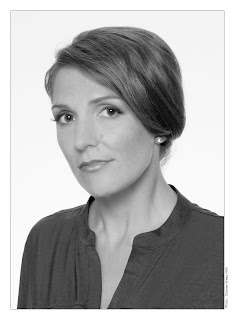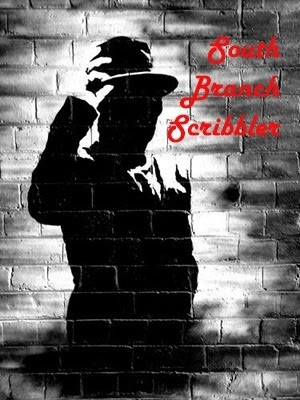A new short story by Allan Hudson
(Yep, that’s me!)
I’ve been sitting on this short story
for a while but I wanted to share it with you this week. I hope you’ll leave a
comment below and let me know what you think of it.
Misconceptions
(Copyright owned by the Author)
They
removed his thumbs the day before his rendezvous with death. His hands are
bandaged up to his wrists, cocoons of tight white gauze. Given he could
probably defuse the bomb with eight fingers, it doesn't matter. His grandmother
helps him strap the explosives to his torso. The dynamite is old; crystals form
along the upper ridge. Chances are slim that it could explode prematurely, yet
it remains dangerous to work with. Although neither is nervous, they handle it
carefully, committed to what must be done. Six tubes, eight inches long, one
and a quarter inch in diameter, are ensconced in a light canvas vest, the front
of which is being sewn together. It won’t fall off, nor can it be taken off.
She pulls the stitches tight. She does it correctly because if not, the dark
hooded man watching her will kill them both. She speaks to her grandson. Not
with words but with damp trails along her wrinkled cheeks. The glistening of
his eyes is the only response.
*
 |
| Photo Credit: Agus Dietrich - Unsplash |
When he arrived in Canada, his
passport proclaimed him to be a British subject. It also bragged of extensive
travel, with many stamps filling the worn pages. The plane he had arrived on
was an Air Canada Boeing 747 from Singapore. He had flown economy. His last
days on the planet were not meant to be luxurious. A beaten leather satchel he
carried had all the trimmings needed by a freelance journalist, both digital
and tech-free. He told the people at customs he was in Vancouver to cover the
leaking oil tanker in the Puget Sound, which had run aground three days
earlier. The lady inspecting his bag was outraged at the damage the leaking oil
would do to the environment, encouraging him to point the finger at the oil
company. Everything was in order, all his papers, his credentials, his
reservations. Like his passport, the documents he presented were the best
forgeries a deep wallet could find. His first name is Joseph.
He’d trained for this for four weeks.
The events within the target city were explained to him. The grounds where he
would be stationed. He’d perfected his English. He’d studied topographical maps
of the surrounding terrain, vehicle and pedestrian traffic patterns, charts and
diagrams. He’d rehearsed fitting the vest, knew the blast radius and the damage
it would inflict. Special attention was paid to the fact that the dynamite they
would be using was not fresh. Stolen from an open-pit coal mine that has been
closed for over a year, the explosives are at least two years old. The sticks
have a weight strength of forty per cent, meaning they are forty parts
nitroglycerine and sixty parts dope. Extremely powerful. Precautions must be
followed. Most importantly, he had been drilled on the consequences of not
doing it properly. An underlying threat.
 |
| Photo Credit : Propagandaguard.com. |
Many
hours of each day were for indoctrination: why he was doing this; who he was
doing it for; understanding he was born for this purpose, fortunate to be
called forth by a higher power. Overcoming his fears. Promises of eternal
happiness. His name will live forever in the history of his people. There was
no turning back.
The discipline restored many memories
of why he was chosen. When his parents died, he was fourteen years old, left to
fend for himself. His only living relative, his father’s mother, lived
thousands of miles away. No means of support, living day to day, feeding on
scraps or what he could find in other people’s waste. Disillusioned, he sought
answers from a persuasive man, someone wearing the mantle of a holy person. He
believes that what he’s doing is right.
His rooms in the city had been booked
for two weeks to cover his tracks. Upon arrival, he tore up the forged papers
and buried them deep in a dumpster. A locker at the bus station contained a new
identity, that of a Canadian citizen – a reporter for a Toronto daily. These
documents were equally well crafted. His first name is still Joseph.
The next morning he took the bus to
the largest city east of Vancouver. An apartment awaited him. There he found
food, money, western clothing, maps, and a canvas vest with six empty pockets.
His grandmother, his only living relative, would join him two days before he
walked to the target. His superiors had arranged for her arrival. If he messed
up, she wouldn’t be going back. The armourer would arrive in the morning and
place the explosives, then witness the sewing of the vest. When he was
satisfied he would arm the explosives. Joseph would have to be at the
designated site no later than five o'clock that afternoon. The crowd would be
at its peak then.
 Going over the checklist embedded in
his memory, he follows his instructions carefully. He eats every meal at a
different restaurant or café. According to his trainers, there should be no
pattern to his movements. Four times he walked the same route. Remaining discreetly
for a few events, he studied the people.
The first walk was tentative, having never been in the city before. Each
time, he looked for potential barriers or obstructions. At different times of
the day he ventured out on his forays. Warned against drawing attention to
himself, sometimes he lingered amid the masses. Felt sorry for the children.
The timing each day differed by less than ten minutes. Except once. The fourth
day he walked an extra forty-five minutes and found a location far superior for
his own intentions. Thinking of his principals, he knew this new location would
cause more damage. Deciding to give himself an extra hour, he planned to leave
the apartment at three-fifteen the day of the attack. He swore to himself to
keep this a secret, vowing to not even tell his grandmother. She’d understand.
Going over the checklist embedded in
his memory, he follows his instructions carefully. He eats every meal at a
different restaurant or café. According to his trainers, there should be no
pattern to his movements. Four times he walked the same route. Remaining discreetly
for a few events, he studied the people.
The first walk was tentative, having never been in the city before. Each
time, he looked for potential barriers or obstructions. At different times of
the day he ventured out on his forays. Warned against drawing attention to
himself, sometimes he lingered amid the masses. Felt sorry for the children.
The timing each day differed by less than ten minutes. Except once. The fourth
day he walked an extra forty-five minutes and found a location far superior for
his own intentions. Thinking of his principals, he knew this new location would
cause more damage. Deciding to give himself an extra hour, he planned to leave
the apartment at three-fifteen the day of the attack. He swore to himself to
keep this a secret, vowing to not even tell his grandmother. She’d understand.
All the fears and moments of
uncertainty he’d accumulated prior to the discovery of the different location
shrivelled like snowflakes on wet ground. He no longer felt anxiety over his
superior’s objectives. He accepted his fate; he would give his life to send a
true message to the world. Remembering the discussion on blast damage to the
crowd, he knew his body would be obliterated. No one would ever know who he
was. The day before his grandmother was to arrive, he left the apartment. He
had to be careful because without a doubt he was being watched. In a café, he
wrote a letter to the local daily, addressed to the editor. Intentionally
leaving his fingerprints on the paper, he mailed it from the shopping center
later in the day, forty-eight hours before the event. This was not part of the
instructions he had received. He slept. He prayed. He envisioned the aftermath,
an imagined glory in his name.
He lost his thumbs. He waited.
*
Until today.
Drugs reduce the pain in his hands to only a throbbing reminder.
The dynamite presses uncomfortably
against his ribs and he grunts when his grandmother tugs at the heavy yarn.
When she ties off the last knot, she is roughly pushed aside by the shadow
whose deep voice chills both their hearts. Following a close inspection, he
gives his approval by securing the detonators and clock and connecting the
wires. He never looks them in the eyes. His very presence silences them,
humbles them, scares them. They do exactly as they’re told. He locks the
mechanism in place. Backing off with folded arms, he points to the oversized
coat, the mitts, scarf and hat.
The grandmother gently moves the
sleeves over the patched up limbs, securing the heavy coat around his
shoulders. Although it’s a size too big, it fits tightly in the front when she
buttons it over his deadly potbelly. They look each other in the eye as she
slides the four-fingered hands into the large mitts. Wrapping the scarf around
his neck and placing the hat on his head, she rubs her hand along his cheek to
hold his chin in her hand. Gazing at her grandson, she hugs him tightly. She
had brought him up; she knows the type of man he’s become. A huge hand
interrupts her thoughts, pulling her away. Not so rough this time, he sees the
melancholy in her eyes. He opens the door to the safe house, and a whirl of
loose snow sweeps through the door. Pointing to the portal, his voice is
lighter, proud.
“Your destiny awaits.”
Joseph walks past the department
stores, office buildings, high rises, apartment complexes, the frozen
alleyways, smiling at everyone he meets. Avoiding crowded sidewalks, he
sometimes has to alter his route slightly, worried he’d be jostled about or
accidentally knocked to the ground. He obeys the walk signals. His pace is even
and pre-planned. The ceremonies will be half over by the time he arrives;
thousands of people will be outdoors. Clear skies guarantee a capacity crowd.
The Olympic Games had ended that morning. The closing ceremony is the most
attended event, peaking at five o’clock. His planners knew where to place him
and how to bypass security. There is nothing to spoil his detour to the new
location. There’s a lot of uphill walking to where he’s going. By the time he
reaches his target he’s winded and relieved to be seated. No one has paid
attention to him. All he has to do is wait. It’s four forty-five.
 |
| Photo Credit: Caitlin Wynne - Unsplash |
*
CBC News
Six O’clock Edition
“Reporter Isabelle Crockett is live at Mount Hannah.”
Crockett’s voice over
describes the blast area, with live video feed from a police helicopter. Bright
beams focus on a gash in the earth, treetops burning, smoke and dust swirling
in the updraft.
“The devastation from an unknown explosion devastated
the northern peak of Mount Hannah, shattering huge rocks, uprooting trees,
creating an avalanche of shattered stones that cascaded into the forested
foothill. Treetops and brush are burning from the intense heat of the eruption.
Officials are perplexed as to what may have caused the explosion.”
The helicopter sweeps to
the south, where crowds have torn down barriers in their rush to safety. The
crowd has thinned, with onlookers gathered in knots about the perimeter. The
parking lot is filled with fire trucks, police cars, ambulances. Flashing
lights add a rainbow to the chaos.
“Television footage from the closing ceremonies is being
analyzed at this moment. The main consensus is that it was fortunate the blast
did not occur on the southern side of the mountain where hundreds of people
would have perished. Other than superficial injuries from flying rock
fragments, there have been no deaths reported. It’s too early to tell….”
*
The shrouded man enters the safe house
using the only key. He’d been warned of the possibility, and the grandmother
must die. Doing old people is a chore he dislikes. He hesitates when he hears a
voice from the TV entertaining the empty room, a news channel reporting what
people are saying about the bombing. The announcer speaks of terrorism. The
only light is a sliver under one of the bedroom doors. When he calls out to the
grandmother, she doesn’t answer. Cautious now, he removes a dagger from his
belt. Creeping to each door, he scans the inner darkness. Easing the door to
the lighted room open, he’s not surprised by what he sees.
Curled in a fetal position upon the
bed, the old woman has a black and white photo of a child clenched in her puny
fist, perhaps it’s her grandson. A long black dress is wrapped tightly about
her legs. Eyes closed, her brow is smooth and relaxed. Her skin is pale in the
garish overhead light. Most notably, a slight smile is frozen on her withered
face. When he reaches over to feel for a pulse, he already knows what he’ll
find. Confirming that she’s dead, he’s relieved.
The front door remains unlocked when
he leaves. Someone will find her. They won’t know who she is. The autopsy will
explain how she died, but not why.
*
Forty-two hours after the explosion, a
technician is fingerprinting the editor of the city’s daily. He has just handed
the letter to a detective, who holds it with tweezers. He turns it towards the
desk lamp. There is no salutation. No date. Only the stamp from the post office
on the envelope attests to the time frame in which it had been sent. The
printing is imprecise, wobbly like an elderly person, or someone extremely
nervous. The wording is simple, punctilious.
I died on the top of Mount Hannah.
I was not meant to die alone.
I am not a murderer.
We are not all alike.
We are not all mass killers.
The End.
Thank you for visiting the Scribbler.
Don’t forget to leave a comment. Don’t be shy!
 It’s a
special treat to have Georgette as our guest this week. She is an accomplished
poet with many publications available. Most recently she was chosen as the Poete Flyee for the 2019 Frye Festival.
She is also the Poet Laureate for the
Canadian Parliament. She has kindly agreed to a 4Q Interview.
It’s a
special treat to have Georgette as our guest this week. She is an accomplished
poet with many publications available. Most recently she was chosen as the Poete Flyee for the 2019 Frye Festival.
She is also the Poet Laureate for the
Canadian Parliament. She has kindly agreed to a 4Q Interview.
 GL: I was excited to be asked - honored
really - to be this year's Poète flyée for this year's festival. The Poète flyée opens and closes the festival
with readings of published or original poems written during the week. I have
great memories of the Frye Festival and wanted to pay tribute to literature and
the festival itself. I also really wanted to write about what the festival is and
was for me - as a poetess - writer- i.e Northrop Frye himself - his thinking
and his essays.
GL: I was excited to be asked - honored
really - to be this year's Poète flyée for this year's festival. The Poète flyée opens and closes the festival
with readings of published or original poems written during the week. I have
great memories of the Frye Festival and wanted to pay tribute to literature and
the festival itself. I also really wanted to write about what the festival is and
was for me - as a poetess - writer- i.e Northrop Frye himself - his thinking
and his essays. GL: I write! New poems and more new poems. I can be
solicited by parliamentarians or members of the Senate to write poems for
events or causes. I also have the right to decline these requests. I am also
given the opportunity to continue pursuing my own creative projects. Incredible
really. It's a two-year contract with the Library of Parliament - a formidable
group of individuals.
GL: I write! New poems and more new poems. I can be
solicited by parliamentarians or members of the Senate to write poems for
events or causes. I also have the right to decline these requests. I am also
given the opportunity to continue pursuing my own creative projects. Incredible
really. It's a two-year contract with the Library of Parliament - a formidable
group of individuals. GL: I didn't know I was writing a
collection of bilingual poems! but this is a good idea because I am writing
bilingual poems for the library. Truthfully, I'm a little spooked - writing
short poems and actually publishing them on the website shortly thereafter is a
very different writing experience. I'm writing a different kind of poem. I
usually like to spend time with a story. I love building narrative. My books aren't
collection of poems. All of them are written in free verse but read like novels
- short novels. I like characters, narrative arcs and plot points. I want to
tell you a story.
GL: I didn't know I was writing a
collection of bilingual poems! but this is a good idea because I am writing
bilingual poems for the library. Truthfully, I'm a little spooked - writing
short poems and actually publishing them on the website shortly thereafter is a
very different writing experience. I'm writing a different kind of poem. I
usually like to spend time with a story. I love building narrative. My books aren't
collection of poems. All of them are written in free verse but read like novels
- short novels. I like characters, narrative arcs and plot points. I want to
tell you a story.

















